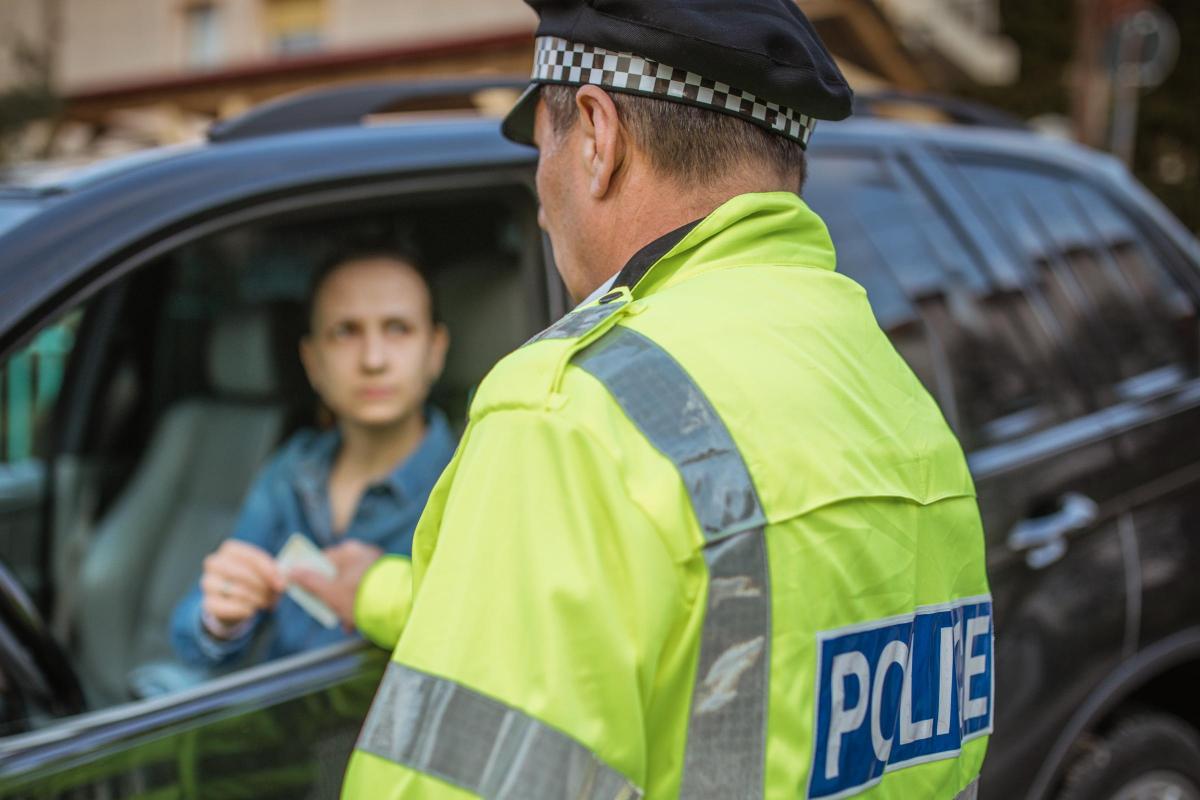
How Driving Offences Can Impact Your Indefinite Leave to Remain
When you apply for ILR in the UK, it is essential to understand how driving offences can impact your indefinite leave to remain application. Even minor road traffic offences, such as careless driving, can lead to complications. If you receive a fixed penalty notice or are convicted of an offence, it may affect your visa application. The Home Office reviews your driving record for 4 years, and having points on your licence could negatively impact your chance of being granted indefinite leave to remain.
Typically, if the offence occurred within 24 months and is classified as a minor offence, such as a traffic offence, it may not significantly hinder your application for ILR. However, it is crucial to make every effort to maintain a clean record, especially when applying for indefinite leave or a visa extension like a spouse visa. Ultimately, any criminal conviction could affect your ILR in the UK, and understanding these implications is vital for a successful application.
What Driving Offences Are Considered Under UK Immigration Law?
Under UK immigration law, certain driving offences can significantly impact an individual’s indefinite leave to remain (ILR) status. If a person receives a criminal record within 24 months for serious traffic offences, such as dangerous driving, this could affect their eligibility to apply for ILR. Even a minor driving offence can lead to complications if it results in penalty points that stay on your driving licence and indicate a pattern of behaviour. It’s important to note that an immigration offence connected to these driving issues may also result in a refusal of ILR.
When submitting an immigration application, applicants must disclose all relevant driving offences. Failure to do so could lead to a refusal of ILR even if the offence occurred less than 12 months ago. If you hold a foreign licence, it is crucial to understand how these traffic offences show up in the UK system. While the government provides a fast-track application package for some instances, it cannot constitute legal advice regarding individual circumstances.
Understanding Traffic Offence Classifications
Understanding Traffic Offence Classifications is crucial for those seeking indefinite leave in the UK. Various driving offences can impact your immigration status. For example, a traffic offence could affect your indefinite leave application if it results in a court conviction on your record or a court disposal that is recorded. Serious offences, especially those occurring within the last 15 or last 7 years, may lead to your ILR being refused.
The application form for ILR requires full disclosure of any offences, whether in the UK or overseas. The general grounds for refusal states that any traffic violation will be recorded and considered during the review process. Therefore, it is advisable to seek guidance by consulting with a qualified lawyer before making any decisions based on your driving history.
Common Driving Offences and Their Implications
Common driving offences can have significant implications for individuals seeking indefinite leave (ILR) in the UK. Any traffic offence could affect your indefinite leave application, particularly if it results in a court conviction on your record. For instance, a serious offence may stay on your driving record for up to 11 years, and if you have an offence in the last 7 years, it complicates your eligibility. The application form for ILR requires full disclosure of any offence in the last 15 years, as ILR is refused based on these criteria.
The general grounds for refusal states that any court disposal that is recorded can jeopardize your chances of obtaining ILR, especially when applying from the UK or overseas. A minor traffic violation will be recorded, and its implications can impact your eligibility to apply for ILR. Therefore, it is crucial to be aware of how such offences could affect your immigration status. It is advisable to seek guidance by consulting with a qualified lawyer before making any decisions based on your driving history.
How Minor Traffic Violations Are Treated
Minor traffic violations, classified as driving offences, can significantly impact your indefinite leave to remain (ILR) eligibility in the UK. If you have an offence in the last 15 years or an offence in the last 7 years, it is crucial to understand how this traffic offence may affect your application. ILR applicants should note that any driving offence on your record could lead to the refusal of your application, especially when preparing your ILR application.
To avoid complications, it is advisable to recommend consulting with a qualified professional, such as UK immigration lawyers, who can provide insights into how a driving offence may impact your application. Decisions are often based on the content of your record, so being eligible to apply for ILR with a clean driving history is paramount. If you wish to remain in the UK and become settled in the UK, ensure that your record is clear of any recent offences.
Can a Driving Offence Affect My ILR Application?
When applying for indefinite leave to remain (ILR), it is essential to consider how driving offences may impact your application. A serious traffic offence could negatively affect your application, as UK immigration authorities often make decisions based on the content of your driving record. While penalty points on your licence or penalty notices for minor offences might not significantly hinder your indefinite leave to remain eligibility, persistent issues could complicate your status.
If you have concerns about whether you are eligible for ILR, it’s wise to consult a specialist UK immigration adviser. They can help you understand how to manage your application and even extend your visa if necessary. Being informed about your application status will ensure you take the right steps toward securing your indefinite leave.
How Serious Are Driving Offences in ILR Consideration?
Driving offences can significantly impact an individual’s application for indefinite leave to remain in the UK. Serious traffic offences, such as driving under the influence or reckless driving, are viewed unfavorably by immigration authorities. These driving offences raise concerns about an applicant’s character and adherence to the law, which are crucial factors in the assessment process. Moreover, the nature and severity of a traffic offence affect the overall evaluation of the individual’s suitability for permanent residency. Consequently, it’s essential for applicants to be aware of how their driving history might influence their chances of obtaining indefinite leave.
What Happens if I Receive a Penalty Notice?
If you receive a penalty notice for driving offences, it’s essential to understand the implications. First, you must review the details outlined in the notice, including the nature of the offence and any associated fines. Ignoring the notice could lead to further legal consequences, including increased fines or additional charges. If you hold indefinite leave status in the country, a penalty notice may affect your immigration status, depending on its severity. It’s advisable to seek legal advice to navigate this situation effectively and ensure that your rights are protected while addressing the penalty notice appropriately.
Impact of a Criminal Record on ILR Eligibility
The impact of a criminal record on Indefinite Leave to Remain (ILR) eligibility can be significant. Individuals with a history of serious offenses may find their applications rejected, especially if they have committed driving offences that resulted in severe penalties. The Home Office assesses applicants based on their criminal history, and certain convictions can lead to mandatory refusals. Moreover, even minor offenses can raise concerns about an applicant’s character and conduct. It is essential for those seeking indefinite leave to understand how their past may influence their future immigration status, highlighting the importance of legal guidance during the application process.
What are the General Grounds for Refusal of an ILR Application?
When applying for Indefinite Leave to Remain (ILR), several general grounds for refusal can lead to an unsuccessful application. One significant factor is any serious criminal activity, which may include driving offences that result in a conviction. Such offences can raise concerns about an applicant’s character and their commitment to abiding by UK laws. Furthermore, applicants must demonstrate that they do not pose a threat to public security or safety. Overall, a comprehensive review of an applicant’s history is essential in determining eligibility for indefinite leave in the UK.
Understanding UK Immigration Rules and Offences
Understanding UK immigration rules is crucial for anyone seeking to live, work, or study in the country. A significant aspect of these regulations involves the implications of various legal violations. For instance, driving offences can have serious consequences for immigrants, potentially impacting their visa status or future applications. It is essential to recognize that such violations may lead to a denial of indefinite leave to remain in the UK. Knowing the specific rules surrounding these offences helps individuals navigate the complexities of immigration law and avoid pitfalls that could jeopardize their residence in the UK.
How Driving Offences Fit into the General Grounds
Driving offences can significantly impact an individual’s immigration status, particularly for those with indefinite leave to remain in a country. These offences are evaluated within the broader context of public safety and character assessment. Authorities often scrutinize the nature and severity of the driving offences, determining whether they reflect poorly on an individual’s moral standing. In some cases, serious offences may lead to reconsideration of indefinite leave, potentially jeopardizing an individual’s ability to reside permanently. Thus, maintaining a clean driving record is crucial for those wishing to uphold their immigration status.
Legal Advice for Those with Traffic Offences
When facing driving offences, it is crucial to seek legal advice to navigate the complexities of the legal system. A qualified attorney can help you understand the implications of the charges and the potential consequences on your driving record. This is especially important if you are a foreign national with indefinite leave to remain in the country, as certain traffic violations may jeopardize your status. Additionally, a lawyer can strategize the best defense or plea options to minimize penalties and protect your rights. Don’t hesitate to consult an expert to secure your future and driving privileges.
What Should I Do If My ILR Application Is Refused?
If your ILR application is refused, it’s essential to understand your options moving forward. First, review the refusal letter carefully to identify the reasons for the decision. If the refusal is due to driving offences, consider seeking legal advice to assess how this may impact your case. You may be able to appeal the decision or submit a fresh application addressing the concerns raised. Additionally, gathering supporting documents that demonstrate your eligibility for indefinite leave can strengthen your case. Timely action is crucial, so ensure you adhere to any deadlines provided in the refusal notice.
Steps to Take After Being ILR Refused
If your application for indefinite leave to remain has been refused, it is crucial to understand the next steps. First, carefully review the refusal notice to identify the reasons for the decision. If the refusal is based on certain driving offences, gather any relevant documentation that may support your case. You may have the option to appeal the decision or submit a new application addressing the concerns raised. Consulting with an immigration lawyer can provide valuable guidance on how to proceed effectively and enhance your chances of a successful outcome.
How to Reapply for Indefinite Leave to Remain
To reapply for indefinite leave to remain in the UK, ensure that you meet all eligibility requirements. This includes maintaining a clean record, as any recent driving offences could jeopardize your application. Gather all necessary documents, such as proof of residence and financial stability, as they are crucial for your case.
Next, complete the appropriate application form and pay the required fees. It’s advisable to consult with an immigration lawyer or advisor, especially if you have had previous issues related to driving offences that might affect your status. Submit your application and await a decision.
Seeking Help from Immigration Lawyers
Seeking help from immigration lawyers can be crucial, especially when navigating complex legal situations. For individuals facing driving offences, understanding the potential immigration consequences is essential. These offences can impact your status and eligibility for various immigration benefits.
Immigration lawyers specialize in these matters and can provide guidance on how to mitigate risks associated with criminal charges. If you are aiming for indefinite leave to remain in the country, having expert legal advice can significantly enhance your chances of a successful application.
Ultimately, consulting with an immigration lawyer can help ensure that you make informed decisions regarding your immigration status and rights.
How Do Driving Offences Impact My Ability to Work in the UK?
Driving offences can significantly impact your ability to work in the UK, particularly if your job requires driving. Accumulating points on your license or facing disqualification can hinder your employment prospects, especially in sectors like transportation and logistics. Employers often conduct background checks, and a history of driving offences might raise concerns about your reliability and responsibility.
Furthermore, if you’re on indefinite leave to remain in the UK, certain serious driving offences could affect your immigration status. It’s essential to understand the legal implications of any driving violations, as they may jeopardize your right to live and work in the country.
The Connection Between Driving Offences and Your Visa
Driving offences can have significant repercussions for individuals living in a foreign country, especially those on temporary visas. Depending on the severity of the offence, it may lead to visa cancellation or impact future applications.
For individuals seeking indefinite leave to remain, a history of driving offences can pose challenges during the assessment process. Authorities often consider an applicant’s character and conduct, which means that any past infractions might raise concerns.
Ultimately, maintaining a clean driving record is crucial for those looking to secure their immigration status and ensure a smooth transition to permanent residency.
Can You Apply for a Skilled Worker Visa with a Driving Offence?
When applying for a Skilled Worker Visa, having driving offences on your record can raise concerns during the application process. Although minor infractions may not necessarily disqualify you, serious offences could impact your overall eligibility. Each case is evaluated individually, considering the nature and severity of the driving offences as well as the length of time since they occurred. It is essential to demonstrate good character and compliance with UK laws to strengthen your application.
Additionally, if you are seeking indefinite leave to remain in the UK, a clean record can significantly enhance your chances. Authorities will assess your conduct, including any past driving offences, to determine your suitability for long-term residency. Therefore, addressing any legal issues beforehand can be crucial for a successful visa application.
Long-Term Effects on Your British Citizenship Application
When applying for British citizenship, it’s crucial to consider the driving offences on your record. Even seemingly minor infractions can have long-term effects on your application. The Home Office assesses your character and conduct, and repeated violations may raise concerns about your suitability for citizenship. Additionally, holding indefinite leave to remain status does not guarantee that your citizenship application will be approved. Your overall behavior and adherence to UK laws are closely scrutinized. Therefore, maintaining a clean record is essential to improve your chances of a successful application for British citizenship.
How to Ensure Your ILR Application Is Successful?
To ensure your indefinite leave to remain (ILR) application is successful, it’s crucial to gather all necessary documentation meticulously. Start by reviewing the specific requirements for your category, whether it be work, family, or other grounds. Make sure to disclose any driving offences as these can impact your application. Additionally, providing proof of continuous residence and knowledge of the English language can significantly strengthen your case. Finally, consider seeking advice from immigration experts to navigate complex areas, ensuring your application meets all legal standards and demonstrates your eligibility effectively.
Gathering Necessary Documentation for ILR
Gathering necessary documentation for indefinite leave to remain in the UK is crucial for a successful application. It is essential to compile various forms of evidence, including proof of residency, employment, and financial stability. Additionally, individuals must disclose any driving offences that may impact their eligibility. This transparency is vital, as immigration authorities assess an applicant’s character and conduct. Furthermore, ensuring all documents are up-to-date and correctly formatted can help streamline the process, reducing the likelihood of delays or requests for further information.
Understanding the Role of Your Driving Record
Understanding the role of your driving record is crucial for maintaining a safe driving environment. Your driving record reflects your history of driving offences, which can significantly impact your insurance rates and eligibility for certain jobs. Employers often review this record to assess a candidate’s responsibility behind the wheel. Additionally, for individuals residing in a foreign country on indefinite leave, having a clean driving record can be essential for obtaining local driving privileges and complying with legal requirements. Prioritizing safe driving habits can help ensure a positive driving record, which benefits both personal and professional life.
Common Mistakes to Avoid in Your ILR Application
When applying for Indefinite Leave to Remain (ILR), avoiding common mistakes is crucial for a successful application. One frequent error is failing to disclose driving offences, which can negatively impact your eligibility. It’s essential to provide complete and accurate information regarding your criminal history, as any discrepancies may lead to delays or rejections. Additionally, applicants often overlook the importance of meeting the residency requirements, such as the minimum period of stay. It’s vital to ensure that all documentation, including proof of continuous residence, is meticulously prepared to support your case for indefinite leave.
CONTACT US
Contact us using our contact form by selecting a service from the drop down list below.






